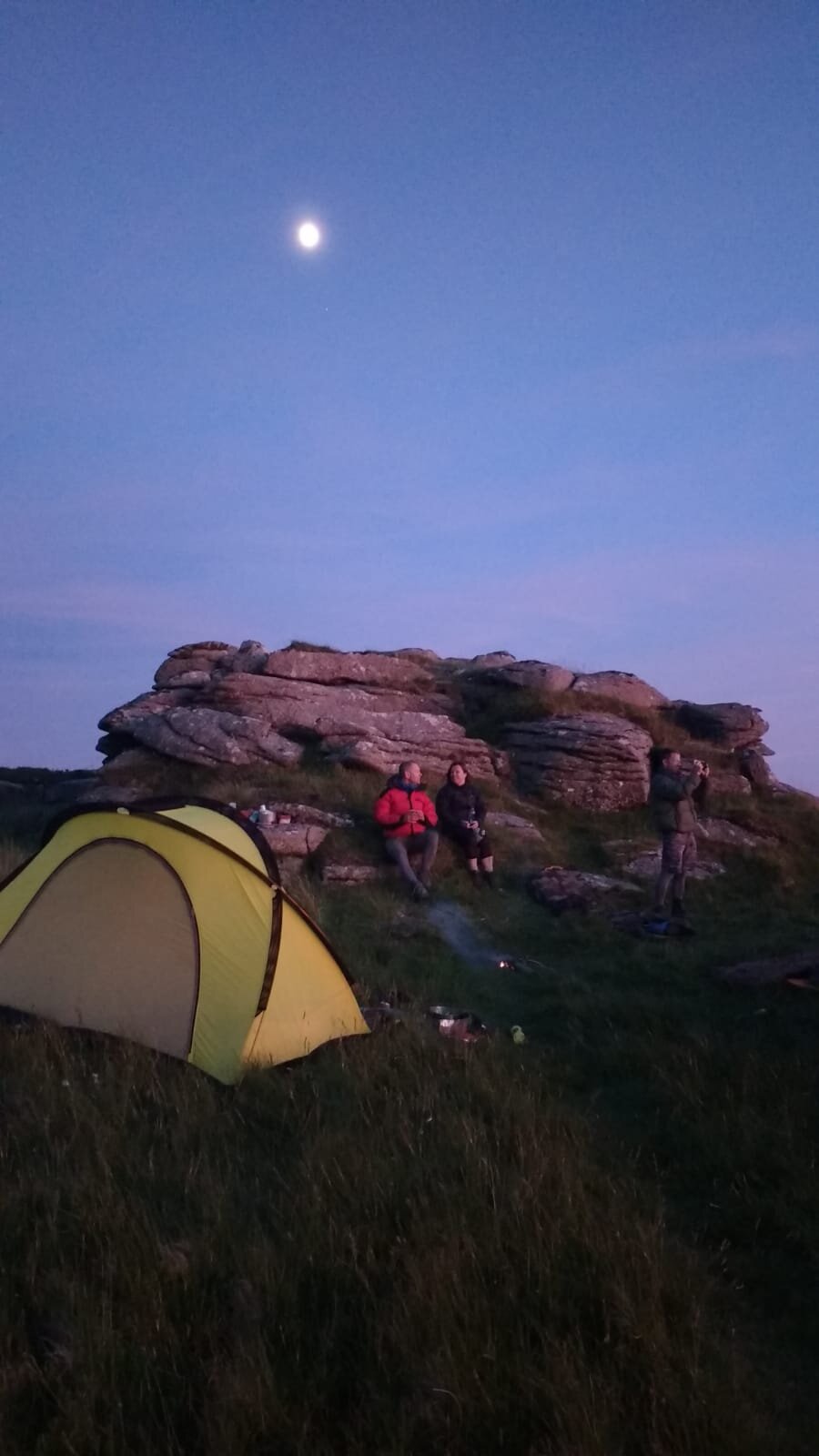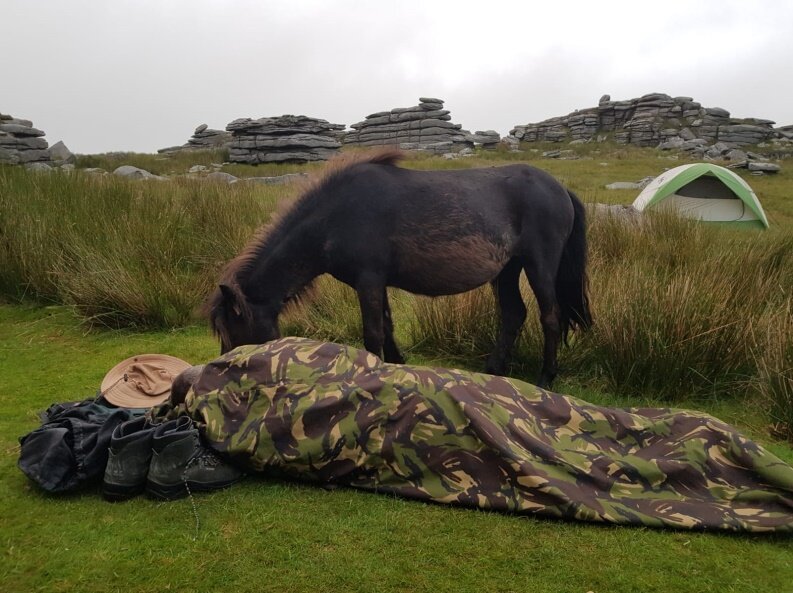With travel restricted by COVID19 here’s an idea to enjoy the last few weeks of camping weather in Britain
by EC community member Nicola Gibbs.
Wild camping is one of my favourite things. Walking away from civilisation and out onto the moors gives you a sense of absolute freedom. Choosing your campsite amongst the rocks and the heather, carrying everything you need on your back… it’s a reminder that camping needn’t be cumbersome. We can live comfortably with very little – all it takes is a bit of planning.
Where to go
Dartmoor National Park is ideal for first-time trips because its bylaws allow wild camping in allocated areas. There are plenty of car parks and you don’t have to stray far to feel like you’re in the wild. Invest in a decent OS map (don’t rely on Google maps; reception can be patchy) that shows topographical features. Pick a likely looking tor or stream a couple of miles from the road, point your compass in the right direction and off you go. It really is that simple.
What to take
When it comes to wild camping, every gram counts. It might be tempting to take lots of gear, but this is back-to-basics camping and the lighter you pack, the more liberated you’ll feel. Scale back your kit list to what you really need to stay safe, warm and well fed. Decant everything into miniature sizes and double up where possible. If you’re going with others, you can share toothpaste and tea bags, but when the temperature drops you’ll be eternally grateful for dry socks, a down jacket and a warm woolly hat. Check out the Explorers Connect wild camping kit list for a guide on what to take.
What to eat
When you’re tired and hungry, food is a real morale booster so I always try to sneak in a few treats. Chocolate always tastes great at the end of the day. Olives are great for replacing lost salt. Chorizo really adds flavour to quick-cook pasta. For breakfast, stick to dehydrated and calorie-dense foods like porridge, nuts, dried fruit and trail bars which give you energy without the weight. You’ll have to take out everything you take in, so remove any packaging before you go.
What to drink
You’ll need at least 2 litres of water per person per day for drinking, plus extra for cooking and washing. Rather than carrying enough fluid for your whole trip (1 litre of water weighs 1 kg), take purification tablets or a water filter and fill up from a stream. Make sure the water is clean, fast flowing and away from any camps.
Choosing a camping spot
We’ve tried a few different camping spots over the years and each has had pleasures and pitfalls. The tors (granite outcrops found all over Dartmoor) have panoramic views, make excellent tables and can provide a welcome windbreak. But there is something idyllic about being next to the river – despite the evening midges. In either case, take care to select some clean, dry ground that’s out of sight of people and buildings.
When to go
Dartmoor weather is notoriously fickle. One valley might be shrouded in mist while another basks in hot sunshine – and it can change in the time it takes to make a cup of tea. You’ll have a better time if it’s not raining so keep dates flexible and wait for a dry weather window. Clear nights can be chilly but lying out under the stars is magical, especially if you’re brave enough to sleep in a bivvy bag (about £30 from a camping shop).
Leave no trace
As with any adventure in the wild, respecting the environment is paramount. Inform yourself about Dartmoor’s wild camping rules before you go, and have a great time!
By Nicola Gibbs





